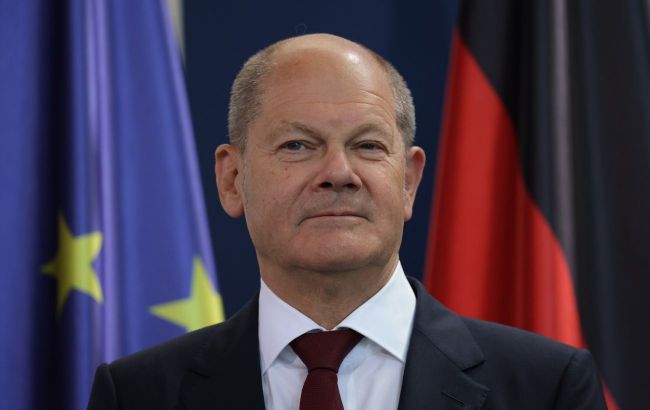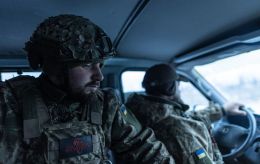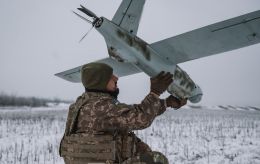Scholz to raise Russia's war against Ukraine at talks with Xi Jinping
 German Chancellor Olaf Scholz (Getty Images)
German Chancellor Olaf Scholz (Getty Images)
German Chancellor Olaf Scholz has declared that he will raise issues of trade rules, Russia's war against Ukraine, and climate at the outset of negotiations with Chinese leader Xi Jinping, underlining a growing list of problems both sides must address, according to Bloomberg.
"We are committed to strengthening the rules-based system for global trade and developing it further together with the other World Trade Organization members," Scholz said ahead of talks in Beijing.
Scholz also said he would discuss with the Chinese leader "how we can contribute more to a just peace in Ukraine."
He added that Germany and China need to work together to find solutions that will help stop climate change and transition to green energy in a socially just manner.
Xi Jinping emphasized the importance of Chinese-German relations as the world faces "increasingly more challenges and risks." He added that both countries must "join hands to inject more certainties" at the international level.
Scholz's visit to China
Scholz's visit comes amid growing tension in relations between China, the EU, and the US over trade and Russia's war against Ukraine. The bloc has begun investigating Chinese subsidies for electric cars and support for wind farms, and will soon launch an investigation into medical equipment procurement.
Scholz's trip also coincides with concerns about a major war in the Middle East, as senior Israeli military officials once again stated that their country has no choice but to respond to attacks by Iranian drones and missiles.
While Scholz sought to maintain good relations with the host during his second visit as chancellor, he was more persistent on issues concerning his country than his predecessor Angela Merkel, who prioritized business interests.
Speaking to an audience of university students in Shanghai, Scholz said, "competition must be fair." He added that he would like to see "no dumping" and "no overproduction," and that copyrights should be respected.
Criticism of China stems from Xi Jinping relying on his country's vast manufacturing industry to drive economic growth, which has encountered obstacles due to the real estate crisis, deflationary pressures, and sluggish consumer demand.
Scholz said that China and other countries should cease aid to Russia. "We will talk about how no one is allowed to assist," Scholz said in Shanghai, referring to the increase in Chinese exports to Russia following the full-scale invasion of Ukraine.
The head of the German government also reiterated calls not to circumvent Western sanctions and not to supply weapons to Russia. According to him, Russia's aggressive war is not only a European problem.
Beijing has provided diplomatic and economic support to Russia since the start of the Russian invasion of Ukraine in February 2022. Trade between the countries has sharply increased, and Moscow has been evading Western sanctions with Beijing's help.

